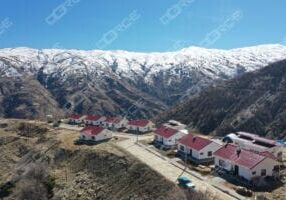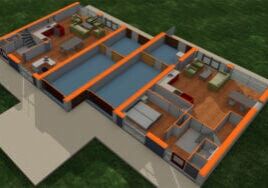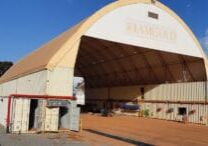How Issa Nesheiwat Conquered the Great Manufacturer/Design Divide

Issa Nesheiwat is the President at Apex Modular Solutions
Just a few short years ago, Issa Nesheiwat had an idea. He had become fixated on the tiny house boom and knew there was a drought of quality products reaching the marketplace. Sure, local carpenters were throwing together cute little micro homes that were Instagram-able wonders. But who could ever really live in a space equal to that of a car trunk? Nesheiwat knew there had to be a better way.
Born in Jordan forty years ago, Nesheiwat is something of an outsider to the modular housing world. His entrepreneurial spirit led him from a childhood growing up in Yonkers, New York, to the more provincial location of Poughkeepsie where he delved into many unique business ventures. Not one to shy away from a challenge, he took on projects that seemed impossible, often in the housing sector. His innate sense of the fundamentals in finance, corporate branding, and business expansion have led him to where he is today. Jumping in feet first, he established Apex Modular Solutions to deal with the affordable housing crisis by offering buyers an attractive and fast way into home ownership, with compact models that met real family’s needs.
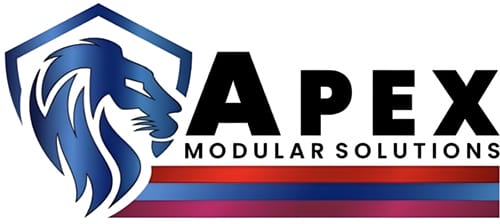
However, a funny thing happened. The more Nesheiwat dealt with financing and manufacturing companies, the better he understood the power he never realized he had. Nesheiwat had already become the market leader in working with manufacturer specifications and options to create multiple alternatives in addition to customer self-design options. He knew he could do more.
Although tiny homes and ADU’s are a wonderful option, many families do not want to start off in one. Working with a variety of high-quality handpicked modular manufacturers, Nesheiwat was able to start creating his own interchangeable designs. His most successful “Iconic Ranch” series was the answer to every household looking to purchase a first home or downsize. That was not the end of his reach in the world of modularity.
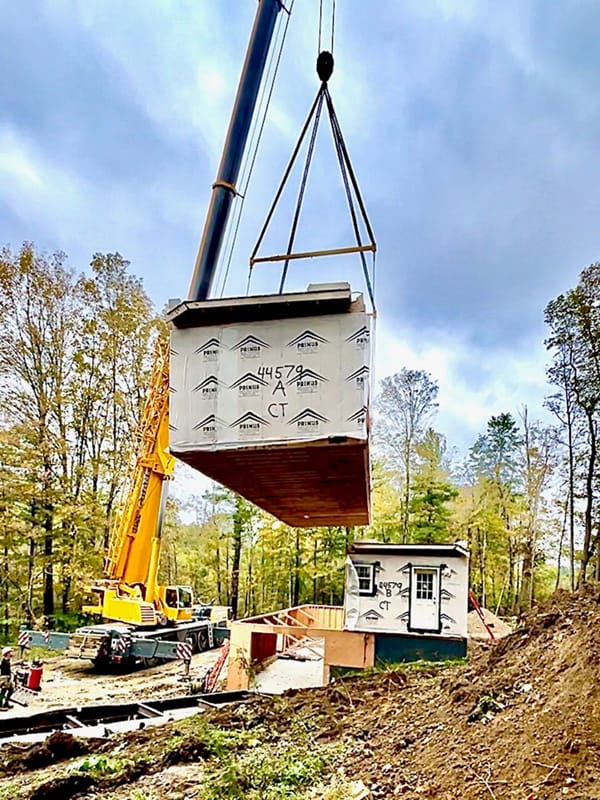
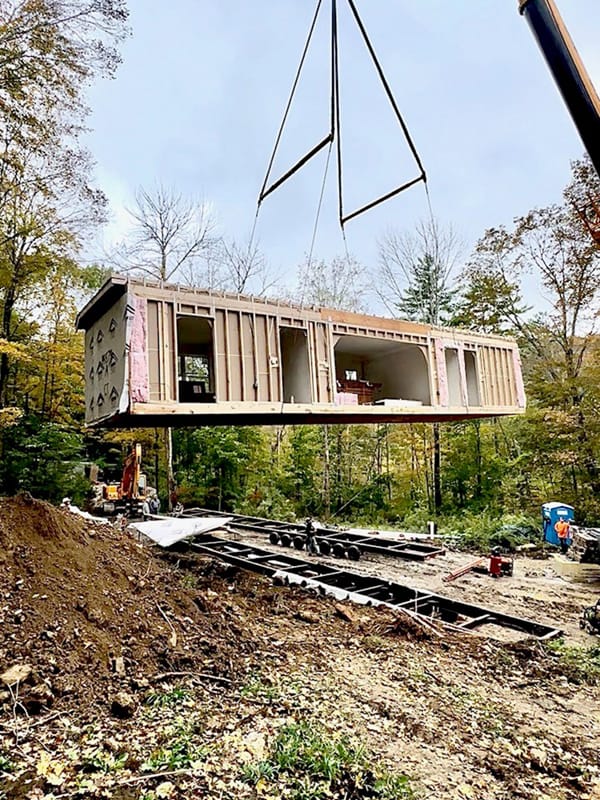
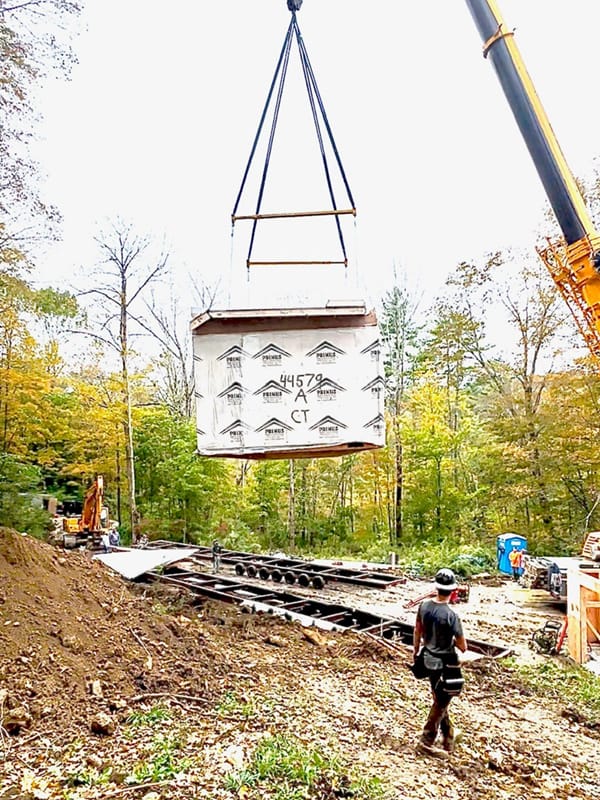
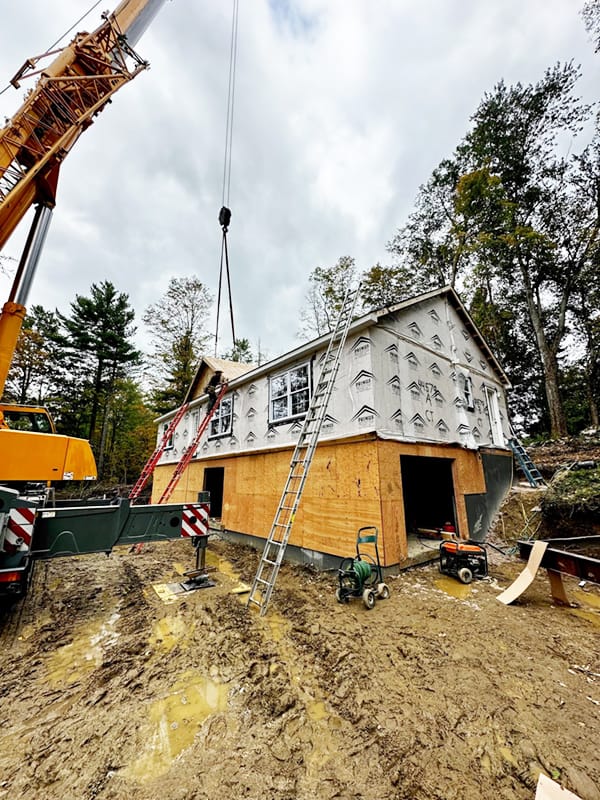
Apex modular house setting.
Over time, Nesheiwat left no blueprint unturned. From full size apartment complexes with flexible commercial space to colonial and cape style homes, he worked to develop designs that allowed the consumer to imprint their own needs into the plans. Types I-V construction are all covered by Nesheiwat. Additionally, he offers services to buyers including land development and easy financing options for one stop shopping. Nesheiwat is able to take everyone from the first-time home builder to the seasoned developer through the entire development process not unlike a project manager or engineering firm. Expertise, advice, and consultation are supplied in abundance.
While Nesheiwat’s headquarters may lie two hours outside of New York City, his reach is nationwide and even extends into Canada. The growing list of modular manufacturers he works with spans the country and he can offer his services virtually anywhere thanks to a unique website that the “Modular Maverick” unveiled recently. The site lets anyone turn their dreams into a reality with his branded “Dream, Design, Develop” mantra. Anyone can tune in to www.apexmodulars.com to see for themselves just how easy it is to start the process of living the Great American Dream.
More from Modular Advantage
DORÇE Navigates Mountainous Terrain, Extreme Weather to Help Rebuild Türkiye
The February 6 earthquakes in 2023 were enormous. In response, DORÇE moved quickly, obtaining a government bid to help create housing and multipurpose structures—both temporary and permanent—for earthquake victims and laborers hired for reconstruction efforts.
Modern Desert Oasis: Building Reset Hotel the Modular Way
While the off-site construction part of the Reset Hotel project has been carefully controlled and with every necessity close at hand at BECC Modular’s factory in Ontario, Canada, the remote location of the project site has created additional challenges for the on site portion of the build.
Revisiting Yellowstone Canyon Village—a Groundbreaking Modular Construction Feat—Ten Years On
With such a short building period due to impending cold, it made the most sense for park developer Xanterra to pursue modular. Yellowstone’s high visitor traffic also required some odd transportation scheduling, as traffic from the West Yellowstone entrance determined the times when trucks could unload modules. Guerdon was up to the challenge.
Built for Brutal Cold, This Modular Office Building Shines
Houlton, the county seat of Aroostook County, Maine, is a small town with a population of about 6,000 residents. Situated along the border between the U.S. and Canada, what the town is most known for is bitterly cold winters. When the U.S. Border Patrol needed new office space, a modular building approach from Modular Genius offered the perfect solution.
Panel Replacement Adds Years of Life to Navy Vessel
Panel Built, Inc., recently replaced all the wall and roof panels on a two-story US Navy barge deck house that the company had originally installed 30 years ago, giving the vessel new life. Now, the commanding officer of the unit that uses the barge said the difference between the condition and appearance from when the barge left their facility to when the project was complete was beyond his expectations of what was possible.
True Modular Building Seeks to Revolutionize Housing. It’s Next Stop: MBI’s World of Modular Europe
True Modular Building (TMB) specializes in crafting attainable, eco-friendly, and comfortable build-to-rent (BTR) housing with modern designs and customizable features, ensuring that residents feel at home both today and tomorrow.
From Toronto to Suriname: A Global Modular Building Story
When I AM Gold – a Canadian gold mining operation based in Toronto, Ontario – wanted to expand its mining operations in Suriname, it knew it would also need to expand its infrastructure. More specifically, they needed to build a mechanical services compound that would allow their local crews to maintain and equipment critical to their mining operations. They also knew that it would be a challenge.
There Were a “Sea of Challenges” for this Modular, Island Development
Question: Can modular construction be used to build a series of affordable, unique housing buildings, all styled to look like they were built in 1845, on an
island that caters to the wealthy? The answer is, of course, yes, but how the
team at Signature Building Systems and KOH Architecture got there is quite a story.
America’s Construction Economy: A Race Against Time
If the economy has been able to handle higher interest rates thus far, undoubtedly it will be able to manage the lower interest rates to come. But many economists are pointing out that the Federal Reserve may already be too late to the game. While they gradually reduce interest rates, the U.S. economy could quickly decelerate, at least based on theoretical grounds if not on the most recent data releases, culminating in that long-predicted recession. Only time will tell.
Top Five Benefits of Modular Office Space
Modular office spaces are transforming how businesses think about their work environments. These innovative structures offer a mix of flexibility, efficiency, and sustainability, making them a smart choice for companies looking to gain an advantage.

